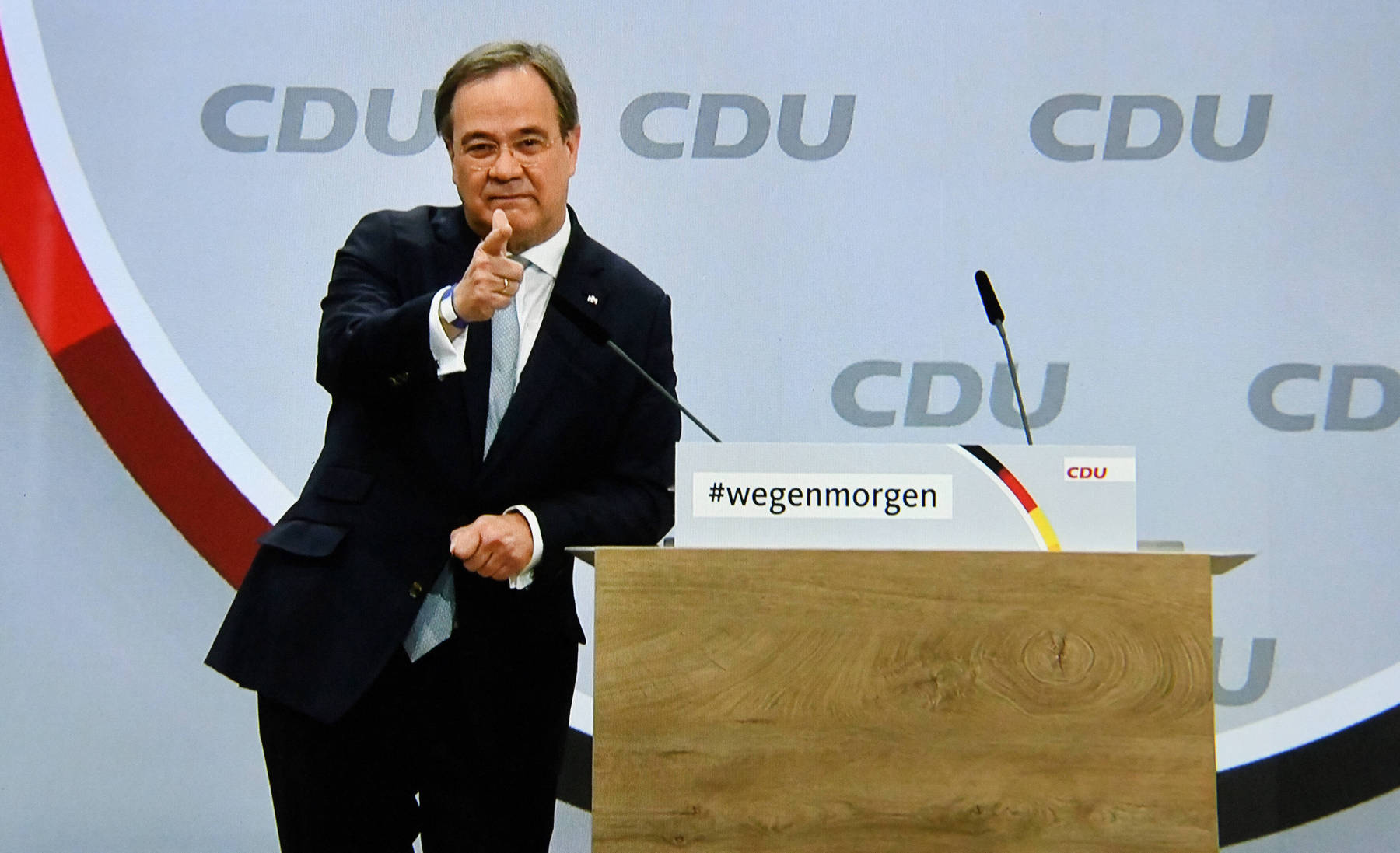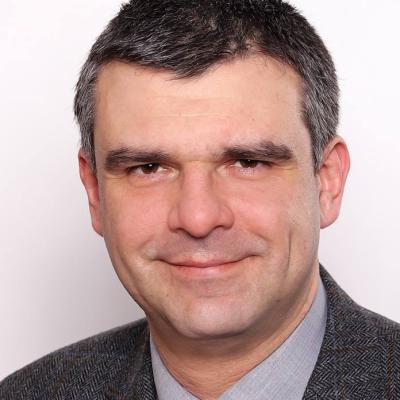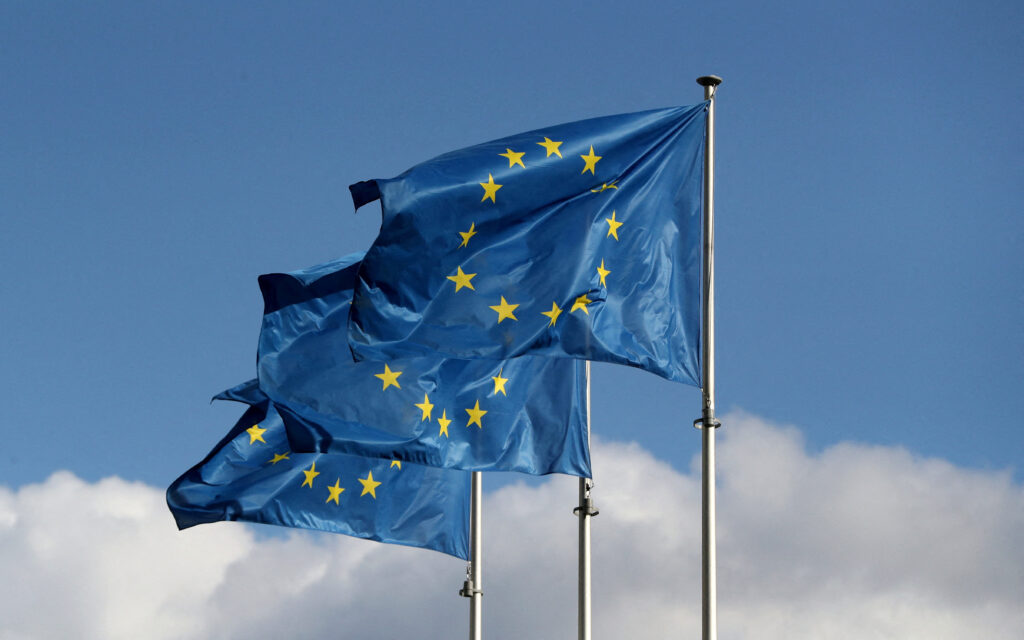On January 16 2020 elections were held for the new leadership of the Christian Democratic Union (CDU), the dominant party in Germany, led by Angela Merkel for 18 years. In the second round, Armin Laschet won.
Election: no surprises
The election process in the CDU became an example of “German stability” with a predictable result. Armin Laschet (Prime Minister of North Rhine-Westphalia and up until the election deputy chairman of the party), Friedrich Merz (a former influential party functionary who later devoted himself to business) and Norbert Röttgen (chairman of the Bundestag’s international affairs committee) ran for the post of party head. The candidates – three men over 55 years from North Rhine-Westphalia with law degrees – fit rather a typical portrait of a 20th century politician.
The main duel unfolded between Merz and Laschet. In 2000-2002 Merz was the chairman of the CDU / CSU faction. But after a conflict with Merkel, he was forced to leave “big politics”. He represents the conservative wing of the CDU, which seeks to abandon the “leftward direction” of the country’s leading party, returning it to a clear ideological center-right orientation. In 2018, Merz lost to Annegret Kramp-Karrenbauer for the presidency of the party. This time he made almost the same mistakes. For a long time in the lead in intra-party polls, Merz contrasts himself with Merkel, emphasizes his ties to big business and sees an absolute priority of economic issues. Merz relied on ordinary party members and their expectation of change.
Laschet, though, used a more subtle strategy. His career had been enabled by the current chancellor, so he openly emphasized a willingness to continue the policies of the past decade. He did, however, cautiously criticize Merkel on some secondary issues. For example, he complained about her slow reaction to French President Emmanuel Macron’s foreign policy initiatives. Laschet heads not only the government of a large and economically powerful federal state, which automatically provides him with a permanent presence on TV channels, but also a large local party organization. These factors, coupled with support from Merkel and an alliance with Jens Spahn, the health minister and another influential inner-party player, provided Laschet with the majority of congress delegate votes.
Domestic policy: no “sudden moves”
The political nickname “Merkelian” became firmly attached to Laschet. Indeed, the new chairman of the CDU enjoys the Chancellor’s consistent patronage. Laschet supported Merkel in the most difficult situations, such as during the migration crisis of 2015. The Neue Zürcher Zeitung even published an article about the election results with the headline “The real winner is Merkel.”
However, the new leader of the Christian Democrats cannot be called a “weak” or “dependent” politician. In 2017, Laschet led his party to a narrow victory in land elections in North Rhine-Westphalia, the former electoral preserve of the center left SPD party. Thanks to the charismatic Hannelore Kraft, the SPD managed to gain more votes than the polls predicted, which left a minimum gap between the two largest parties. But Laschet succeeded in forming a ruling coalition with the FDP liberals by only one vote. This structure, fragile in theory, functions in practice to this day.
In the Berlin corridors of power, Laschet has a reputation for being willing and able to compromise. If Friedrich Merz prefers an aggressive style of politics, trying to get maximum concessions from partners, takes risks and often losing, Laschet avoids proposals that are unacceptable for his counterparts. In all pressing issues, including measures to combat the COVID-19 pandemic, he tries to find a balance of interests. Such qualities will be useful to the leader of the CDU in future coalition negotiations. Parliamentary elections will be held in Germany in September 2021. The CDU are leading the polls and the Greens could be their possible coalition partners. This factor was probably taken into account by the delegates of the party congress during the voting. Merz, as a prominent representative of the business and industrial lobby, could hardly have found a common language with a party of environmentalists. Laschet is ideal for negotiations with the Greens as well as for “Plan B”: an expanded coalition of the CDU, Greens and the FDP liberals.
At the same time, the question remains open. Who will become the chancellor after the departure of Angela Merkel. The political fate of Kramp-Karrenbauer shows that new “stars” are rapidly disappearing from the horizon. Another (besides Laschet) significant candidate for leadership in the ranks of the Conservatives is Bavarian Prime Minister Markus Söder, who heads the CSU, a party that forms a common electoral list with the CDU. Theoretically, Söder could become “number one” in the upcoming elections.
Foreign policy: no change
Laschet’s caution and balanced approach since the days of his work in the European Parliament spill out into the international arena. This applies to all strategic vectors of the Germany’s foreign policy: relations with the US, EU countries, China, the Arab world and Russia.
Of the three candidates for the post of chairman of the ruling party, it was Laschet who was considered the most “suitable” for Moscow. The influential newspaper DIE WELT even included Laschet in the list of “those who understand Russia and Putin” (Putin- und Russlandversteher), along with Gerhard Schroeder, Sahra Wagenknecht from the Left Party and one of the AfD leaders, Alexander Gauland. Journalists quoted Laschet in 2014 about “well-selling anti-Putin populism” in Germany, although in the same interview he called the Crimea “referendum” and the Kremlin’s actions “in violation of the international law”. The politician further emphasized that 1,200 enterprises located in North Rhine-Westphalia operate on the Russian market and 40% of the gas consumed in the region comes from Russia, which serves as an important element in changing the structure of the country’s energy sector.
Seven years later, the situation has changed little. Foreign policy is not the most important direction for Laschet and in experience he is inferior to such “heavyweights” as his former rival Norbert Röttgen. However, the economic component in the work of the Prime Minister of the federal state of Germany, the largest in GDP, forces the new head of the CDU to be interested in German-Russian relations. Laschet actively participates in the activities of the Petersburg Dialogue. Here, he diligently avoids harsh statements about the Kremlin. He calls for “the creation of negotiating channels” with Russia, underlining positive steps by Moscow. For example, he welcomed Putin’s decision to ratify the Paris climate agreement. In 2019, Laschet, hosting the next Petersburg Dialogue in his region, chose the fight against climate change as the central theme of the event. That is the least politically sensitive and the most comfortable for the Russian side. This allowed the lobbying Eastern Committee of the German economy to talk about “signals of convergence” between the countries. Dialogue for Laschet, however, like for many other German politicians, remains a key concept, which was demonstrated during a meeting with Sergey Lavrov in July 2019. Lashet’s position on Nord Stream 2 remains unambiguous as well: he advocates the continuation and successful completion of the gas pipeline construction, urging to consider this issue “separately from Navalny”.
Laschet, all considered, is not a pro-Kremlin politician and has no personal sympathy for the Russian leadership. His views are based on European and transatlantic solidarity. The new head of the CDU supports sanctions against Russia. On the issue of Crimea, he “is not ready to deviate from positions based on international law.” But he is hardly ready to sacrifice the economic interests of Germany for the sake of a policy of containing Russia.










